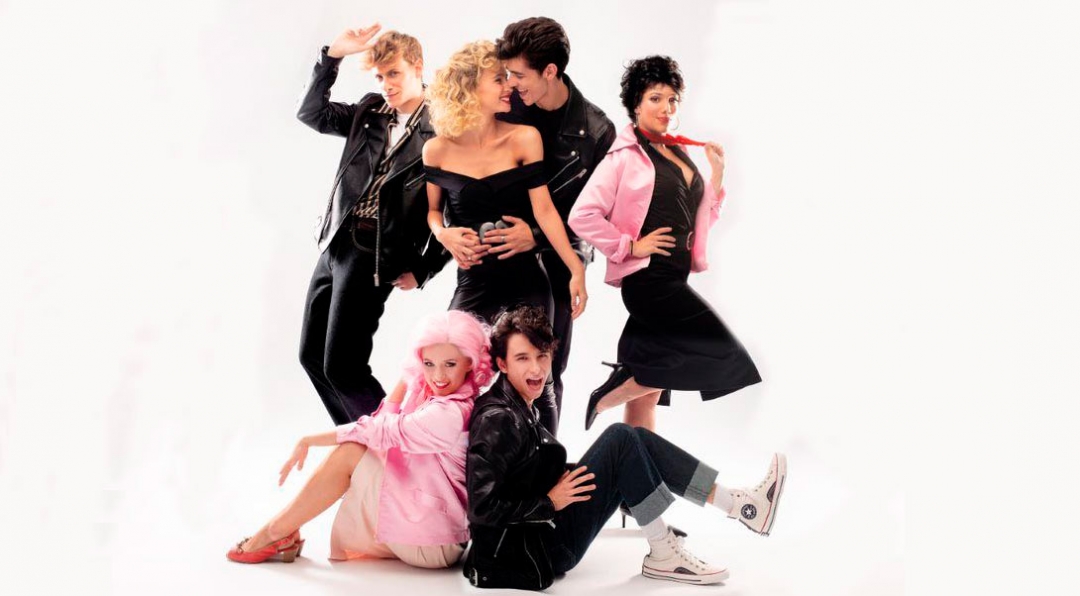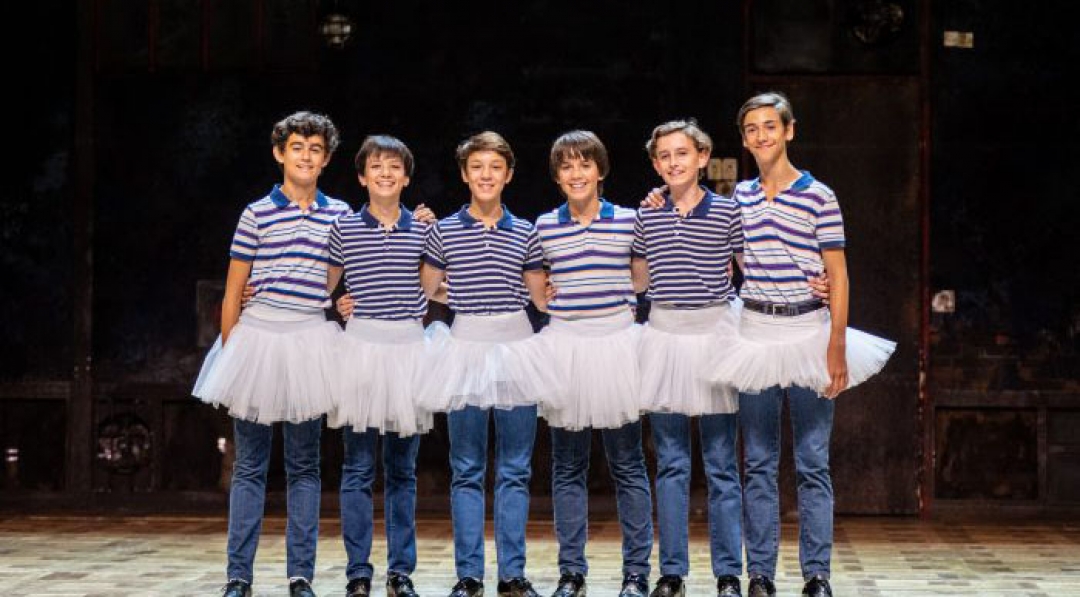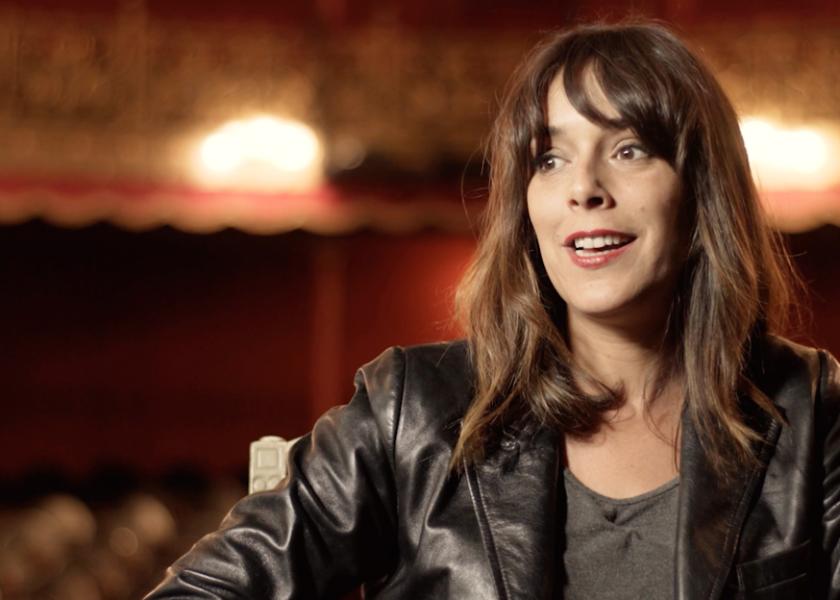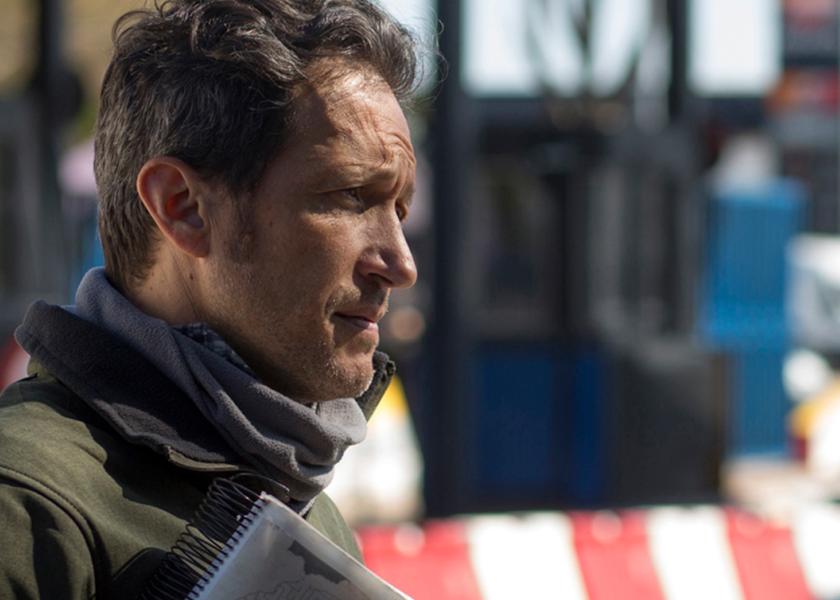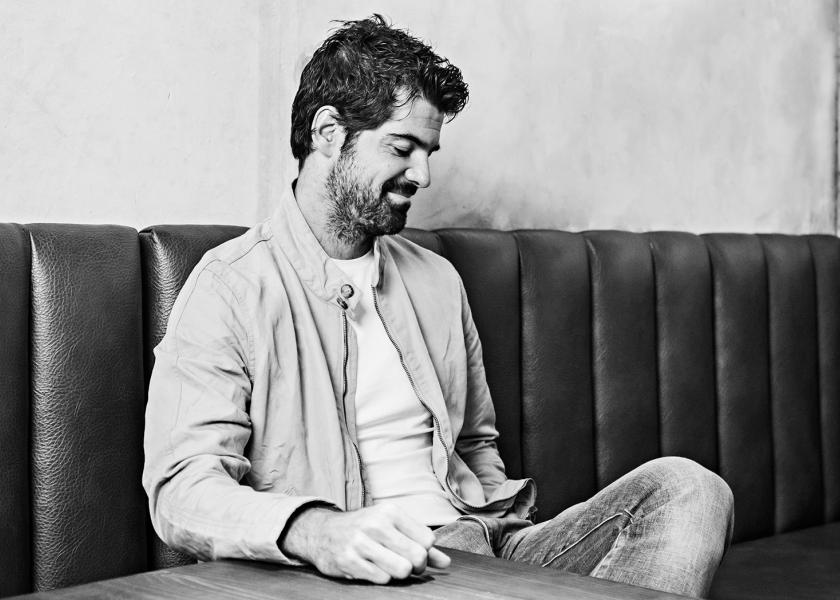David Serrano
The king of the musical gets ‘serious’
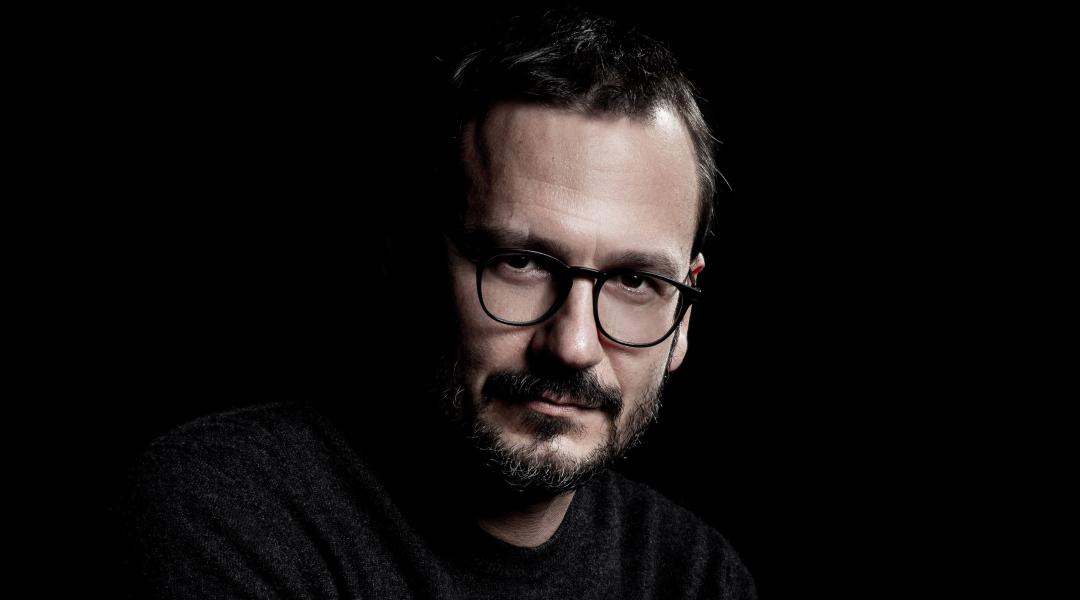
Success has smiled on him since the beginning of his career - 'The other side of the bed' in 2002 and 'Días de fútbol' in 2003 made him one of the highest grossing creatives - but that did not prevent David Serrano from continuing to tackle artistic challenges, each one more complex and ambitious. In his latest works the great revitalizer of musical theater in Spain ('Hoy no me puedo levantar', 'Grease' or 'Billy Elliot'), changes gears and adapts a libretto by Martin McDonagh ('The Pillowman'), away from his fetish genres.
The irruption of David Serrano (Madrid, 1975) in the world of cinema was a big feat: as a screenwriter for The other side of the bed, whose reception Serrano still remembers. "I was at the Malaga Festival - he says - and Emilio Martínez Lázaro told me: enjoy it because this hardly ever happens." But what happened next was that Días de fútbol, his directorial debut, became the highest-grossing debut in Spanish cinema.
Then came the love of the theater, a passion that led him to sign musical librettos such as Hoy no me puedo levantar or Más de cien mentiras that, from Madrid's Gran Vía, that gave the genre a renovating shine. With The Pillowman he has once again achieved public success and for 2022 he plans to premiere a musical film based on songs by the Hombres G (Voy a pasármelo bien), and a new musical performed by children (Matilda).
Why did you choose to adapt a dystopian work like The Pillowman, so far removed from what you had been doing?
For me it is one of the best texts that have been written in the last 25 years, different from everything we are used to seeing - it mixes different styles and tones, and has fascinating characters. It is the story of an author who is arrested because her stories narrate a series of disappearances of children that have also happened in reality. Originally, that character was male, but the author, Martin McDonagh, gave us permission to make her female. It seemed more interesting to me that way, because in the piece the relationship that the writer maintains with her little brother is very important and it would be more special if she was a woman; more exciting, more maternal.
“My obsession was always the cinema, chance was what led me to work in theater”
The leading role features Belén Cuesta, who has become a fundamental actress for you.
I generally work well with all the actors, and with Belén what happens to me is that she absolutely blows my mind with her talent. There may be a special chemistry, but I don't think it is just for me, I think the same thing happens to any director who works with her, probably because she has the same facility for drama as for comedy and that is something that is available to very few. We behold one of the great actresses of this country and she is going to be very important for our cinema and our theater.
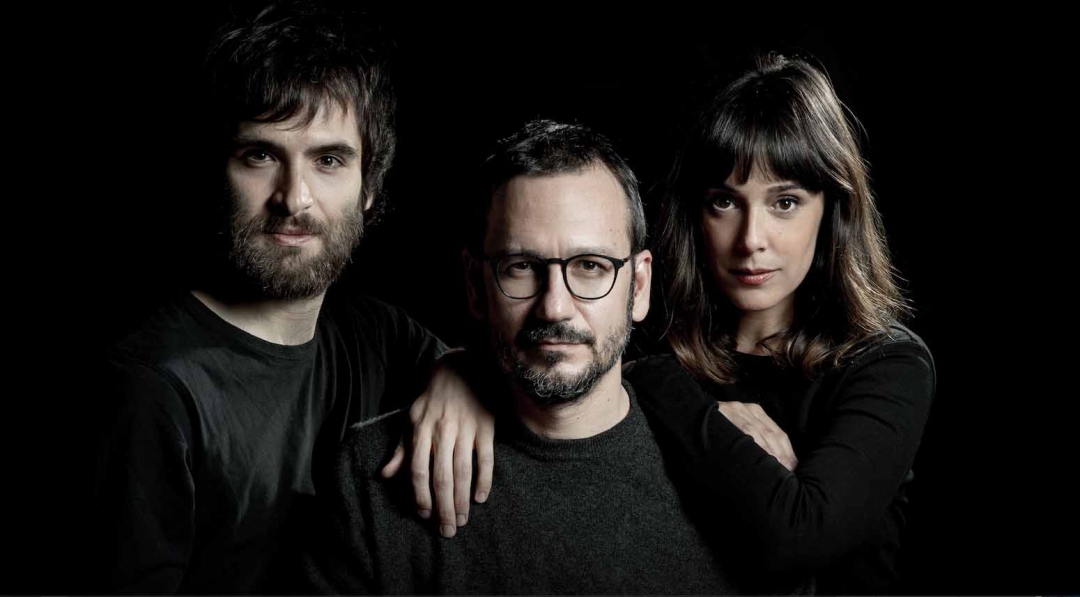
David Serrano directs Ricardo Gómez and Belén Cuesta in the play ‘The Pillowman’. © Javier Naval
How do you choose the texts when making theater?
I look for works that are far from my universe and that hook me from the first reading. The first impression I have when reading it is the one that counts, because that is what the viewer is going to have. I try to put myself in his shoes the moment when he gets comfortable in the armchair. If reading it doesn't hook me first, I won’t give it another chance.
Is it a matter of instinct?
There have always been hunches, a first impulse by which I guide myself. But I am also looking for works that allow me to investigate new terrain, new developments or new staging; something that I have not been able to work on until now. In the audiovisual field they always offer me comedies, but in the theater I try to find projects that move away from that. I am looking for dramas, things other than what I could write myself. I don't have the talent to write the plays that I direct, I don't have that world in my head that Martin McDonagh or Keith Huff might have had when they wrote A Steady Rain.
What would you say is your main talent?
I think I handle the teams I work with well and I get on very well with the actors.
“We are creating a very important quarry for the future of musical theater in Spain”
Your work in the musical theater in Spain has been decisive. What is your goal when tackling this type of project?
From the beginning I tried to make things happen differently, especially on an interpretive level. That is what I defend: dignify musical theater and do it seriously. From the 80s and 90s there was a very great evolution in Spanish theater, a really profound change that did not affect the musical. This was still done in an older way, reciting the text rather than actually saying it, almost pantomime.
Would you say that this is the field that you enjoy the most?
Yes, if I had to choose a discipline to work exclusively on, it would be musical theater. It is something that requires a lot of effort, but it is what I like to do the most. And when I was commissioned with Billy Elliot I also discovered that I loved working with children, and it opened the doors to experiment and work in a different way, almost being a teacher. Then I did Grease, which is now on the bill, and next year we will premiere the Matilda musical with even younger children, nine and ten years old. I think we are creating a very important pool for the future of musical theater in Spain.
At what point did you realize that, in addition to cinema, you wanted to do theater?
It's funny because clearly my theater career is more interesting than film. But when I was little I was a great cinephile, I was six or seven years old and didn't stop watching movies, and when I was eleven or twelve I started reading movie magazines. My obsession was always the cinema — chance was what led me to work in theater.
How did this discovery take place?
When I was starting to make short films, I met people from the Animalario company — Ernesto Alterio, Alberto Sanjuán, Guillermo Toledo and Nathalie Poza were still Cristina Rota's students. So I said, "Wow, I want to work with these people and I want to do this." I asked the director of the company, Andrés Lima, to let me work as an assistant director and little by little I got there. I came to musicals because I had written The other side of the bed and so they started commissioning me since I was the only one who had done something along those lines at the time..
“I have considered using the scheme of ‘The other side of the bed’ several times, but from a dramatic perspective”
What genre have you not explored yet and would you like to?
Many, but what I would most like to do in the future is write a political thriller, something based on real events, or also create a dramatic story around a relationship. In fact, I have considered using the scheme of The other side of the bed several times; the same sequences —those infidelities between two pairs of friends— from a dramatic perspective, but in the end I never do. It could be a good experiment..
How is the health crisis affecting the theater?
Every time there is a crisis, producers, exhibitors and programmers are more afraid and they stop betting on slightly different things, they risk less. Suddenly you find yourself being told, "Now I just want to program comedy because people want to see comedy." But with The Pillowman we have filled the Canal Theaters every day, which shows that this is not true either.

